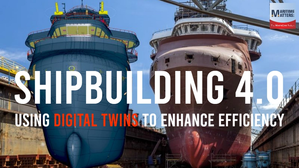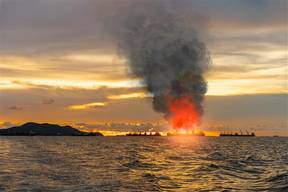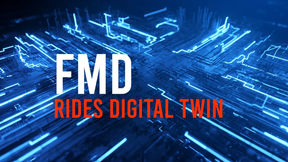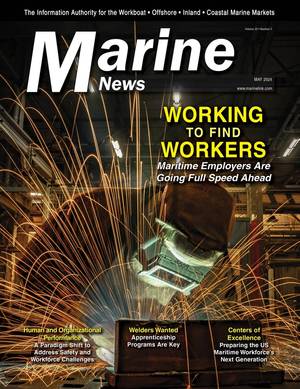Cleaner Shipping Fuel is Contributing to Ocean Warming, Scientists Say
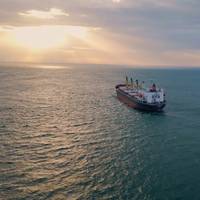
Shipping fuel regulations introduced in 2020 have led to a substantial cut in sulphur dioxide (SO2) pollution, but may also have made the ocean warmer by reducing cloud cover, according to a modelling study in a paper published late on Thursday.International Maritime Organization (IMO) rules to tackle marine pollution forced shippers to cut their fuel sulphur content to 0.5% from 3.5%, leading to an 80% decline in SO2 emissions, according to a research team led by Tianle Yuan at the University of Maryland.SO2…
Red Sea Dissruptions Are Driving Up Carbon Emissions
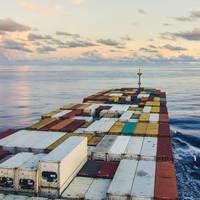
A surge of attacks on ships traveling the waters of the Red Sea is forcing shippers to reroute their vessels, sending them on longer journeys that drive up their carbon dioxide emissions.For companies struggling to account for – and lower – the climate-warming emissions associated with their businesses, these rerouted journeys add to the challenge. Many companies had already revamped their supply chains as they navigated COVID-19 disruptions, extreme weather risks, trade protectionism that forced them to change suppliers…
Red Sea Crisis Forces Operators to Use More Containerships, Adding to Emission Concerns
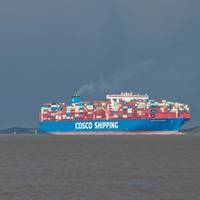
The shipping industry's pledge to limit its carbon footprint may suffer a setback as the current Red Sea crisis prompts it to use more vessels and take longer routes to ensure the smooth sailing of global maritime trade.Iranian-backed Houthi militants' attacks on vessels passing through the southern Red Sea have choked trade through the Suez Canal, driving many container shipping companies to add 10-14 days to the voyages between Asia and Europe and add more vessels.The disruption…
IMO Approves Two New Emission Control Areas
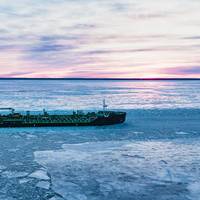
The IMO’s Marine Environment Protection Committee (MEPC 81) approved the establishment of two new Emission Control Areas (ECAs) in the Arctic when it met last week.The ECA in Canadian Arctic Waters is for nitrogen oxides, sulphur oxides and particulate matter. The Norwegian Sea ECA is for nitrogen oxides and sulphur oxides. The ECA proposals will now be submitted to MEPC 82 for adoption.“The creation of these two new Emission Control Areas will set an important precedent for protection of our climate and our ocean…
Pressure Builds for Charge on Shipping Sector's CO2 Emissions
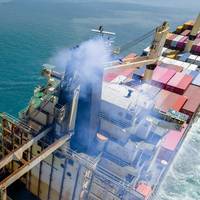
The European Union, Canada, Japan and climate-vulnerable Pacific Island states are among 47 countries rallying support for a charge on the international shipping sector's greenhouse gas emissions, documents reviewed by Reuters showed.The documents, being discussed at an International Maritime Organization (IMO) meeting now entering a second week, outline four proposals with a combined 47 backers for imposing a fee on each tonne of greenhouse gas the industry produces.Support for…
Maritime Emissions Reduction Center Launched in Athens
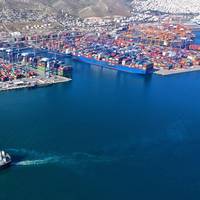
The Lloyd’s Register (LR) Maritime Decarbonization Hub is collaborating with five leading shipowners as founding members in the establishment of a not-for-profit Athens-based global Maritime Emissions Reduction Center (M-ERC) that will focus on optimizing the efficiency of the existing fleet.The M-ERC is being created with the goal of removing technical, investment and community barriers for the uptake of solutions to reduce the greenhouse gas (GHG) emissions of the existing global fleet…
Gasum to Manage Wasaline’s Emissions Allowances
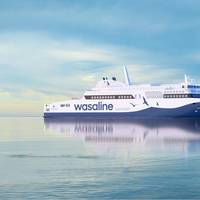
Finnish state-owned energy company Gasum has been selected by shipping company Wasaline to manage its EU Allowances (EUA) portfolio.The partnership will enable Wasaline to better predict and manage the costs of its emissions allowances, according to the company.The EU emissions trading system has included the maritime sector since the beginning of this year.Outsourcing their emissions trading and EUA portfolio allows shipping companies to both manage and predict their costs.Gasum…
World's Largest Cruise Ship Sets Sail, Bringing Concerns About Methane Emissions
The world's largest cruise ship is set for its maiden voyage on Saturday, but environmental groups are concerned that the liquefied natural gas-powered vessel - and other giant cruise liners to follow - will leak harmful methane into the atmosphere.Royal Caribbean International's Icon of the Seas sets sail from Miami with capacity for 8,000 passengers across 20 decks, taking advantage of the surging popularity of cruises.The ship is built to run on liquefied natural gas (LNG), which burns more cleanly than traditional marine fuel but poses greater risks for methane emissions.
New Tech to Monitor a Ship's Black Carbon Emissions
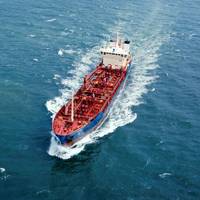
Green Instruments A/S and Danish Technological Institute have developed a real-time flue gas sensor technology - The Extinction-Minus-Scattering (EMS) measurement method - to accurately measure black carbon emissions from ships, a tech which could be instrumental in meeting increasing regulatory demands of the shipping industry for black carbon emission standards. The EMS method enables real-time in-situ measurement capabilities, traceability, and lowered ownership costs, tackling…
AIP for SDARI Ship Designs
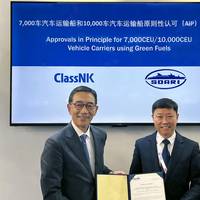
ClassNK awards AiPs for SDARI’s green fuels powered vehicle carriers for ammonia ready LNG dual fueled 7,000CEU, and both methanol/ammonia dual fueled 10,000CEUClassNK has issued Approvals in Principle (AiPs) for three vehicle carrier designs developed by Shanghai Merchant Ship Design & Research Institute (SDARI). The first AiP acknowledges an ammonia ready LNG dual fueled vehicle carrier with a capacity of 7,000 CEU, a significant first in China’s independently developed design.
BSM Geared to Go on Carbon Compliance Management
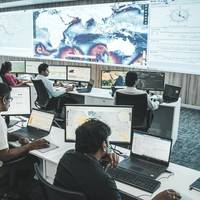
With only a few days to go until EU’s Emission Trading System (EU ETS) kicks in for the shipping industry from 2024. Bernhard Schulte Shipmanagement (BSM) reportes it has developed a comprehensive range of carbon compliance and EU ETS management services designed to support owners and operators mastering the complex regulation requirements and to reduce their carbon footprint and related costs.“Our approach not only encompasses EU ETS management and compliance services but also seeks to optimise ship and fleet performance to reduce CO2 emissions and financial exposure…
FOCUS-How Shipping More US Natural Gas to Europe Helped Fuel CO2 Pollution
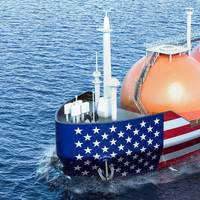
Carbon dioxide emissions from U.S. liquefied natural gas facilities have jumped to 18 million tons per year, up 81% since 2019, adding a volume of greenhouse gas to the atmosphere equivalent to that produced by several big coal plants, according to United States government data.They could more than double to 45 million tons per year by the end of the decade as new facilities, encouraged by soaring overseas demand for the super-cooled fuel, come online, according to company projections provided to the U.S.
Shipping Industry Off Track to Meet 5% Zero-emission Fuel Target by 2030
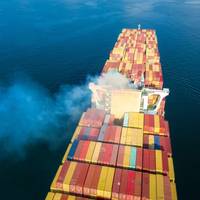
The world is not on track for zero-emission fuels to account for 5% of international shipping fuels by 2030, a new analysis has found, jeopardizing the shipping industry's 2050 decarbonization goal.Launched at the Global Maritime Forum's annual summit in Athens on Wednesday, the assessment finds that current scalable zero-emissions fuel (SZEF) production in the pipeline would cover just a quarter of the fuel needed by 2030. And the delivery of zero-emission vessels is also faltering. At the end of 2022, there were 24 ships capable of running on SZEF, mostly methanol, with another 144 on order.
OpEd: EPA Must Stop Unsafe and Costly California Maritime Mandate
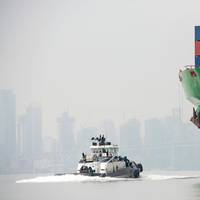
California’s maritime sector is essential to America’s role in the global economy and to the supply chain. Yet, a mandate from the California Air Resources Board (CARB) has cast a shadow over the safety and efficiency of this sector, which will have far-reaching effects on the nation.While CARB’s intentions to bolster air quality are commendable, and California’s maritime industry has a proven track record of working to lower emissions, the hasty directive for tugboat operators…
Port of Aberdeen's Shore Power Project to Dramatically Cut Vessel Emissions
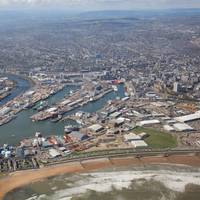
Port of Aberdeen said Thursday it had been awarded funding from the UK Government for a multi-million-pound project to design and deliver the first large-scale landside and vessel-side shore power system in Scotland."The demonstrator project will cut vessel emissions at the berths by more than 80% compared with burning marine fuel and save in excess of 60,000 tonnes of CO2 equivalent over the next 20 years," Port of Aberdeen said.Crucially, the port said, ‘Shore Power in Operation’ will pave the way for the roll-out of green shore power across North Harbour.
ABS Invests Electrification Center in Singapore to Support Green Shipping

The American Bureau of Shipping (ABS) is launching a global ABS Electrification Center in Singapore to support maritime decarbonization projects.Comprised of ABS engineers and technical specialists, the center will support a range of cutting-edge electrification projects for shipowners, shipyards and other stakeholders across the Asia Pacific region and around the world, ABS said.The center will also provide support for the electrification of harbor and coastal craft aligned to the initiatives from the Maritime and Port Authority of Singapore (MPA).
California Opens Applications for Zero-Emission Freight and Marine Equipment
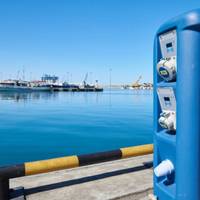
The Bay Area Air Quality Management District in California has announced the opening of applications for zero-emission heavy duty forklifts, port cargo handling equipment, marine vessel repower and shore power for unregulated ocean-going vessels.Up to $20 million in funding is now available statewide through the VW Zero-Emission Freight and Marine (ZEFM) program. Applications are being accepted and reviewed on a first-come, first-served basis until funding is exhausted.Eligible equipment for the marine vessel repower funding includes combustion-fueled engines in ferries…
Decarbonisation Group's Biofuel Bunkering Trial Finds Sharp Drop in Emissions
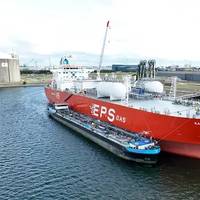
The Global Centre for Maritime Decarbonisation (GCMD) found carbon emissions fell 83% using a vegetable oil biofuel blend compared with marine gasoil in a trial for a dual-fuel liquefied petroleum gas (LPG) carrier, the center said on Tuesday.This was the third of five supply chain bunkering trials that the GCMD has undertaken as part of an $18 million project to test different biofuel blends to reduce carbon emissions. The trials are key to helping the fuel and shipping industries…
SeaARCTOS: New ECAs Need New Approach to Emissions Monitoring
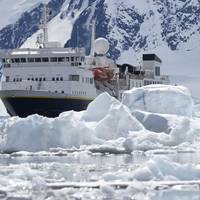
Flag and port state control authorities will need new tools to monitor compliance within the next wave of Emissions Control Areas (ECAs) if compliance is to meet minimum standards, according to emissions management start-up SeaARCTOS.“There is a risk that as the industry focuses on carbon, that sulfur emissions fall into the background, but they continue to present a serious public health risk and a compliance challenge,” says Michael Kougellis, SeaARCTOS CEO. “Growth in the ECA network means that demand for emissions monitoring and compliance management will continue to increase…
DNV Releases Shore Power Class Rules for Tankers
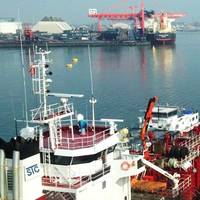
DNV has introduced new class rules for electrical shore connections specifically tailored for tankers.The need for new rules emerged following amendments to the California Air Resources Board's (CARB) Ocean-Going Vessels At-Berth Regulation, requiring tankers to have emission control strategies in place at specific ports from January 2025. As a response to these regulatory changes, DNV, on behalf of the Western States Petroleum Association, conducted a comprehensive assessment…
UN Chief Urges Net Zero Emissions Agreement for Shipping by 2050
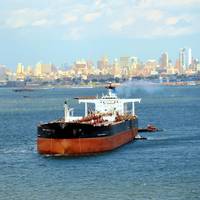
United Nations Secretary-General Antonio Guterres on Monday called for agreement to reach net zero greenhouse gas emissions by 2050 at crunch shipping talks in London this week and urged decarbonisation efforts to move faster.China, however, is pushing back on the targets, according to a diplomatic note issued by Beijing.Shipping, which transports around 90% of world trade and accounts for nearly 3% of the world's carbon dioxide emissions, is facing calls from environmentalists and investors to deliver more concrete action…
SeaARCTOS Emissions Monitor Secures LR Type Approval in Principle
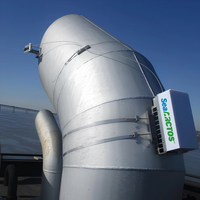
Lloyd’s Register (LR) has awarded type approval in principle to SeaARCTOS for its emissions monitoring technology ARCTOS-1, which monitors carbon dioxide (CO2), methane (CH4) and sulphur dioxide (SO2) exhaust levels with a dedicated sensor attached to a vessel’s exhaust stack.Designed to provide transparency on emissions monitoring and help support compliance with local and regional sulphur regulations, ARCTOS-1 enables ship owners and operators to understand their vessel emissions…
InterManager Urges European Commission to Employ Polluter Pays Principle

Ship management association InterManager is urging the European Commission to follow the polluter pays approach when finalising legislation intended to reduce greenhouse gas emissions from shipping in European waters.Shipowners are concerned that proposed EU-ETS legislation could miss its mark if it holds ship management firms accountable for emissions reductions rather than target the parties who control key pollution-related aspects of ship operation such as fuel, machinery and vessel speed.In a submission to the Commission…


